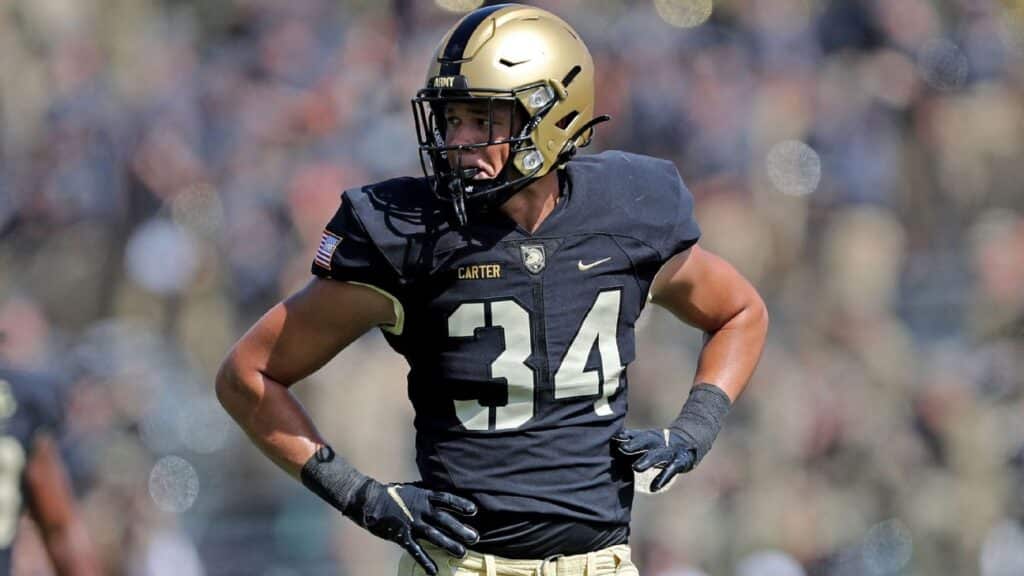
Can Army and Navy Athletes Be Drafted? A Look at the New Armed Forces Waiver

by Hunter Campbell
Service academy athletes, like those from Army, Navy, and Air Force, face unique challenges in pursuing professional sports careers due to their military obligations. Despite talent on the field, players like Army’s Andre Carter II went undrafted in 2023, raising questions about their eligibility for the NFL. Here’s a breakdown of the policies shaping their futures.
Congressional Changes Tighten Rules
In December 2022, Congress passed a bill tightening restrictions for service academy athletes. It mandates that cadets and midshipmen fulfill two years of active-duty service after graduation, stating that pursuing professional sports would breach their agreements. This law took effect immediately upon President Joe Biden’s signature, overturning previous policies allowing deferrals for athletic careers.
A History of Policy Shifts
The rules governing service academy athletes have fluctuated in recent years:
- Obama Era: Athletes could defer active service and join pro teams under reserve status.
- Trump Era: In 2019, President Trump reinstated waivers, allowing athletes to pursue sports careers before active duty. He argued this policy ensured players didn’t miss their professional windows due to military obligations.
- Biden Administration: Reinstated strict service requirements, limiting deferment opportunities.
Notably, athletes like Navy’s Keenan Reynolds (drafted in 2016) benefited from the Obama-era policies, while others, such as Air Force players Jalen Robinette and Weston Steelhammer, were affected by later reversals.
NFL Players with Military Ties
Only a few service academy athletes have reached the NFL, including Alejandro Villanueva (Army) and Joe Cardona (Navy). Historic players, like Roger Staubach, fulfilled significant service obligations before playing professionally, setting a precedent that the Pentagon highlighted when justifying its policies.
The Debate Continues
While some advocate for deferments to allow athletes to capitalize on their prime playing years, others emphasize the importance of honoring military commitments. The ongoing policy changes leave many service academy athletes in a complex position, balancing their athletic dreams with their duty to serve.
This issue remains a critical conversation for military academies and the NFL alike, especially as Congress continues to shape the rules for these exceptional athletes.





